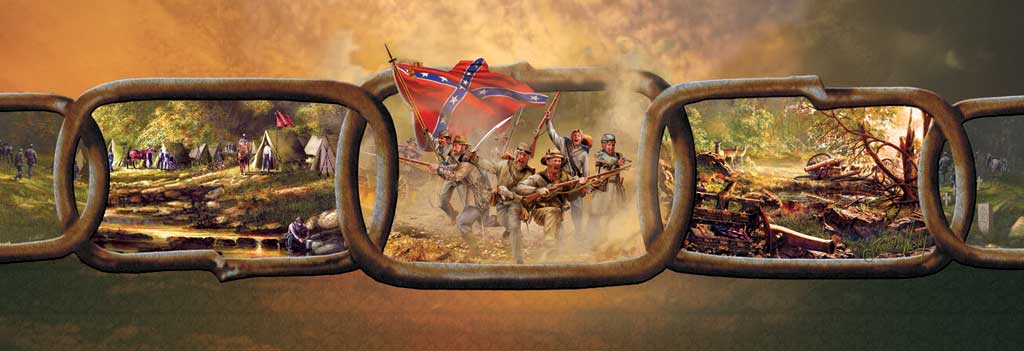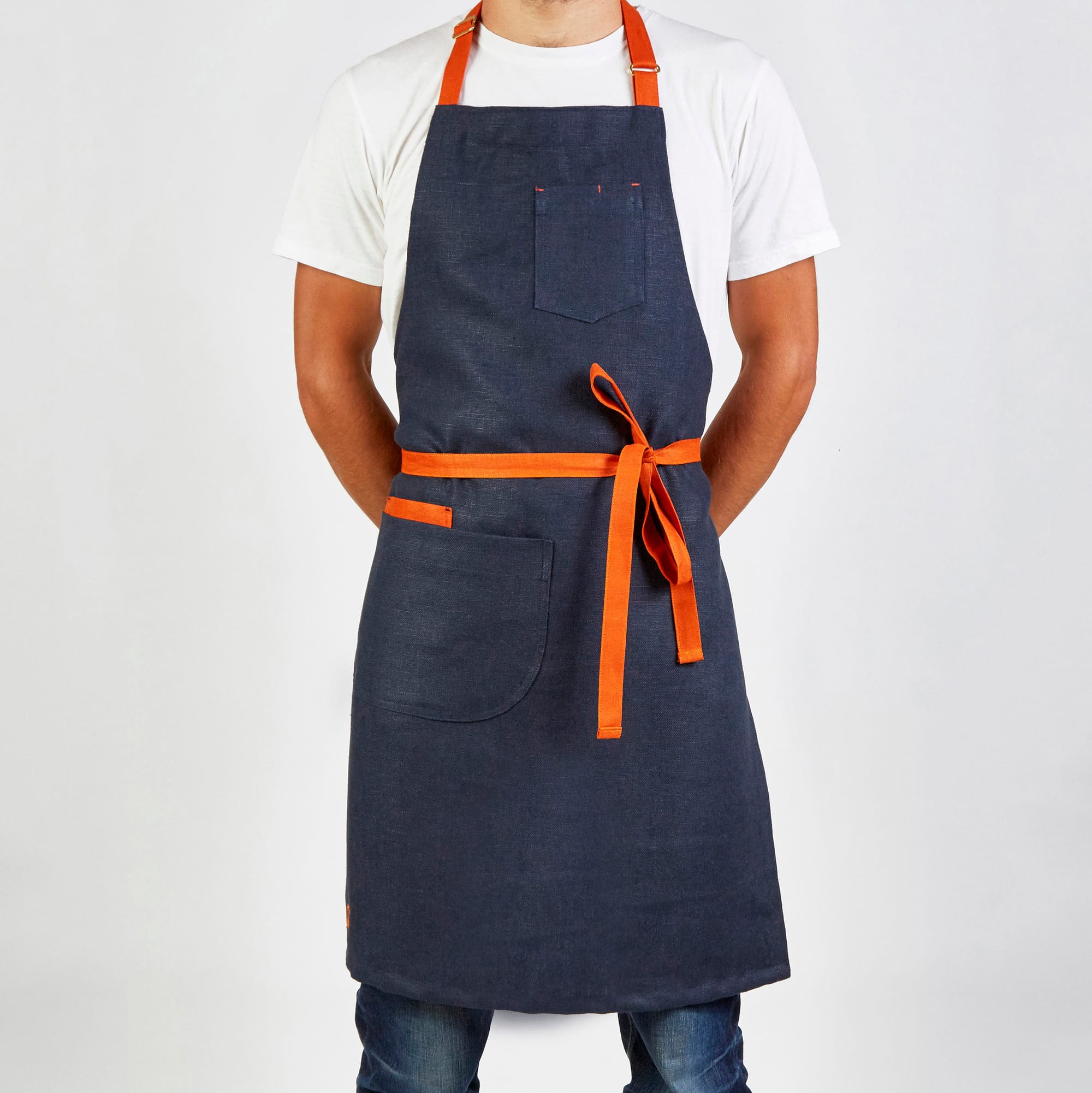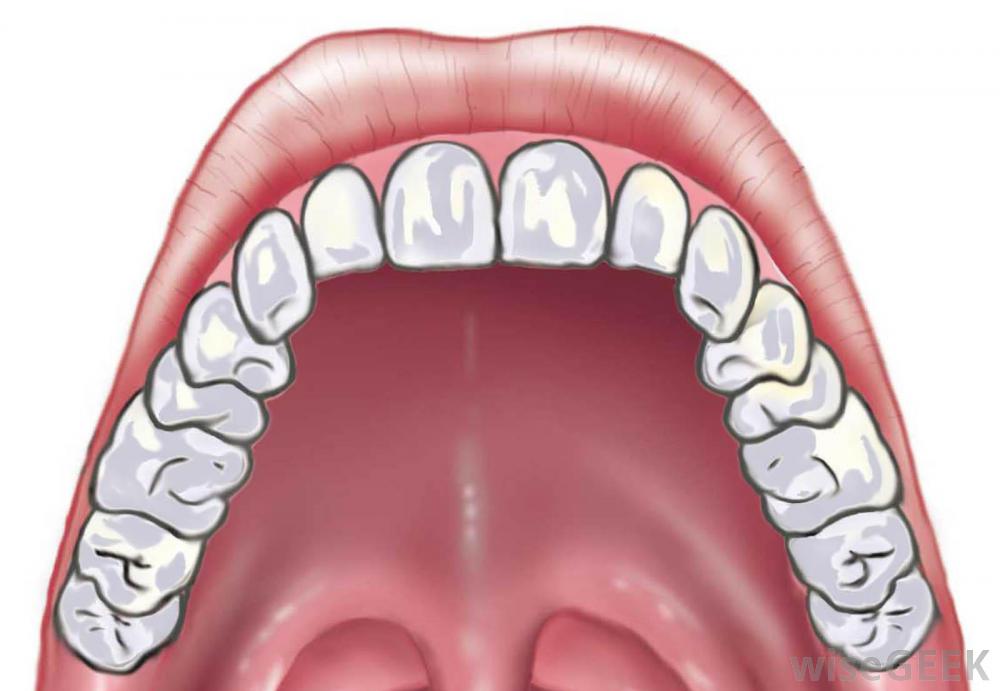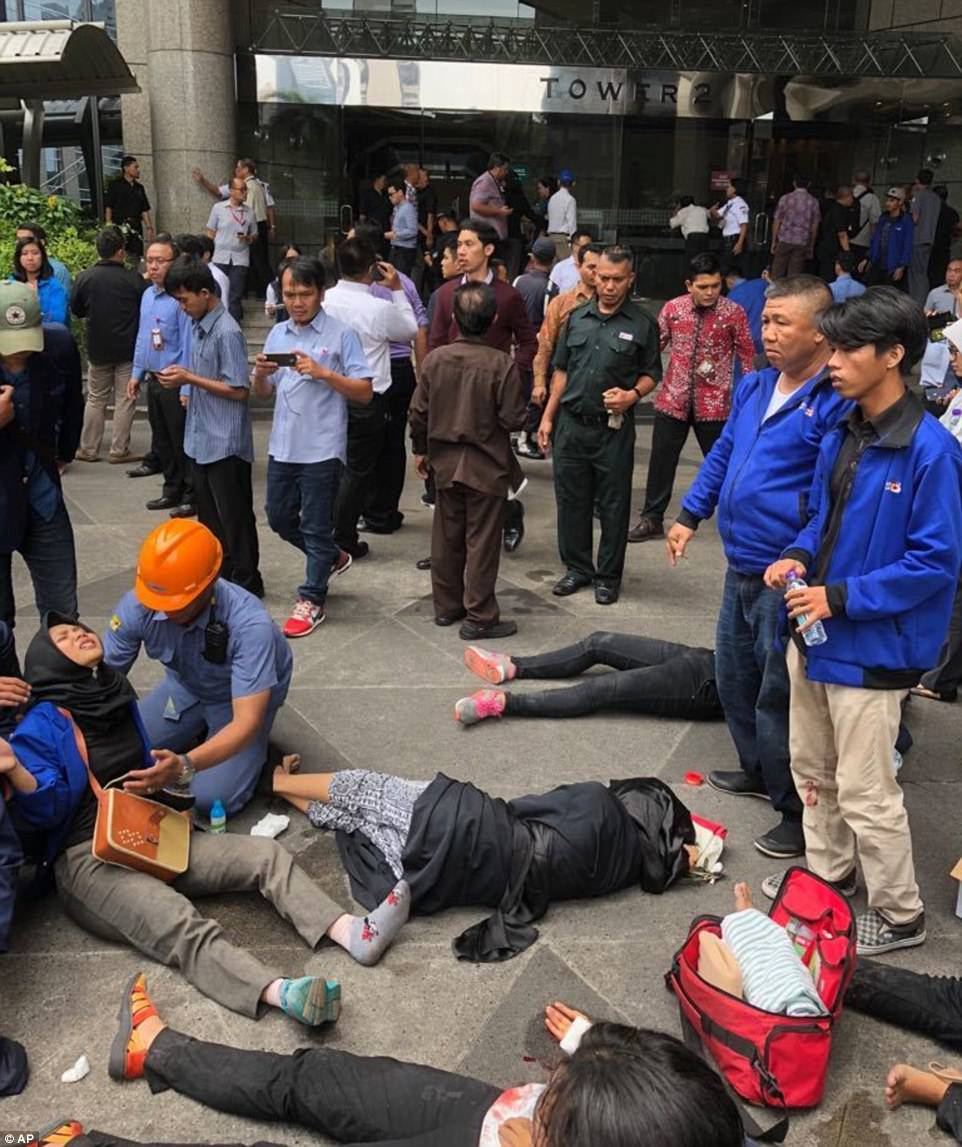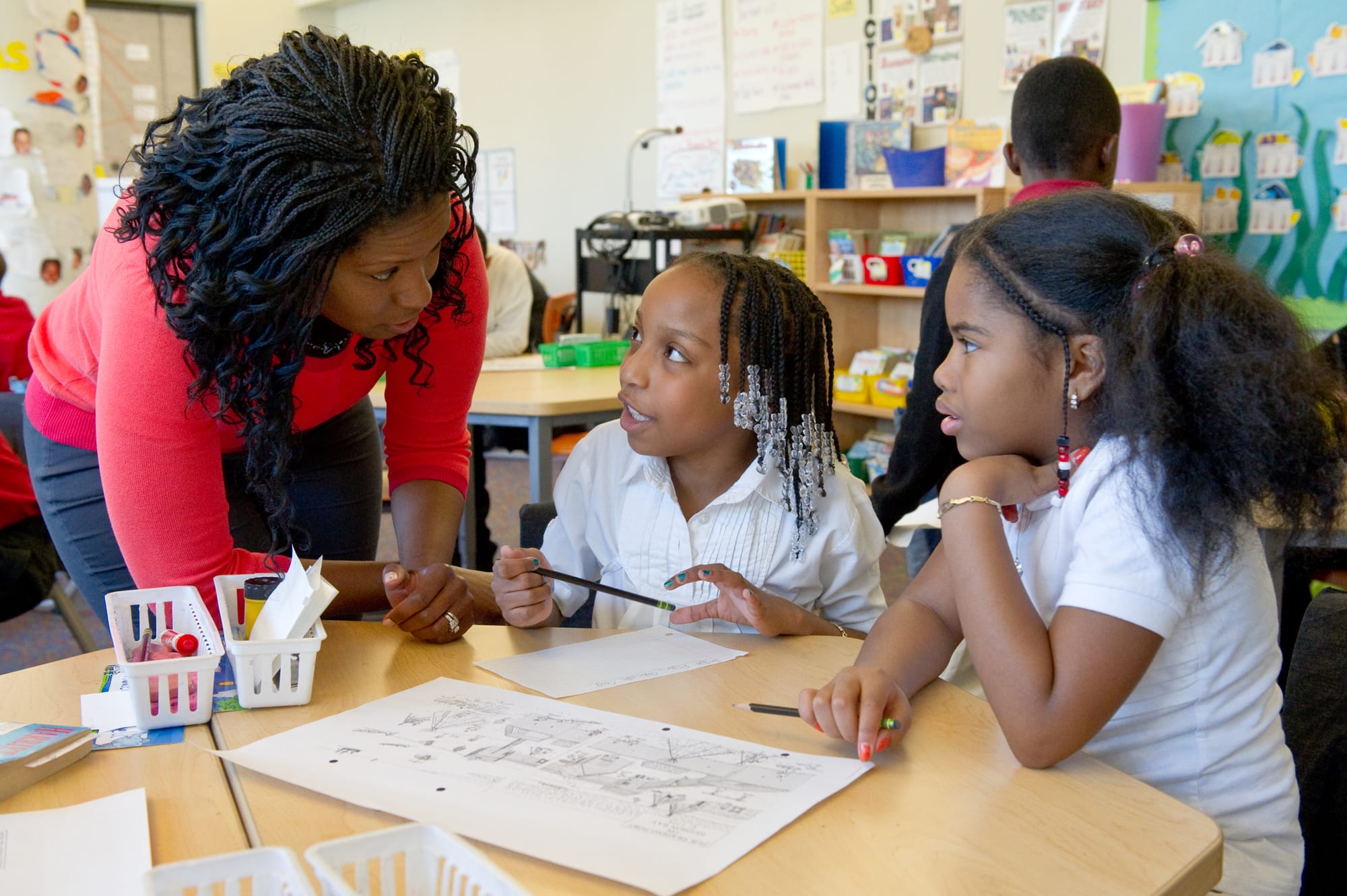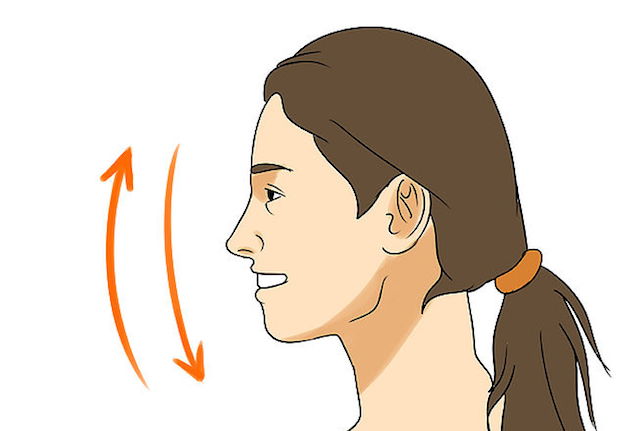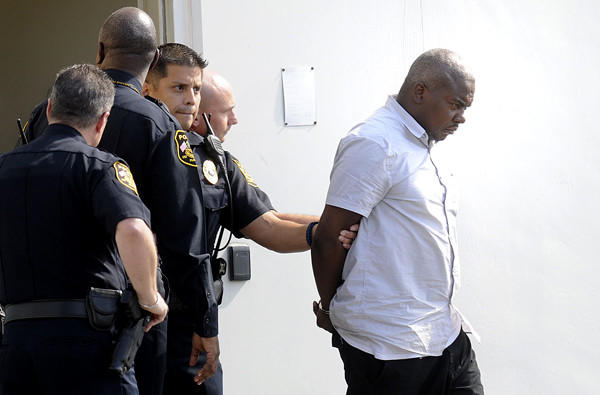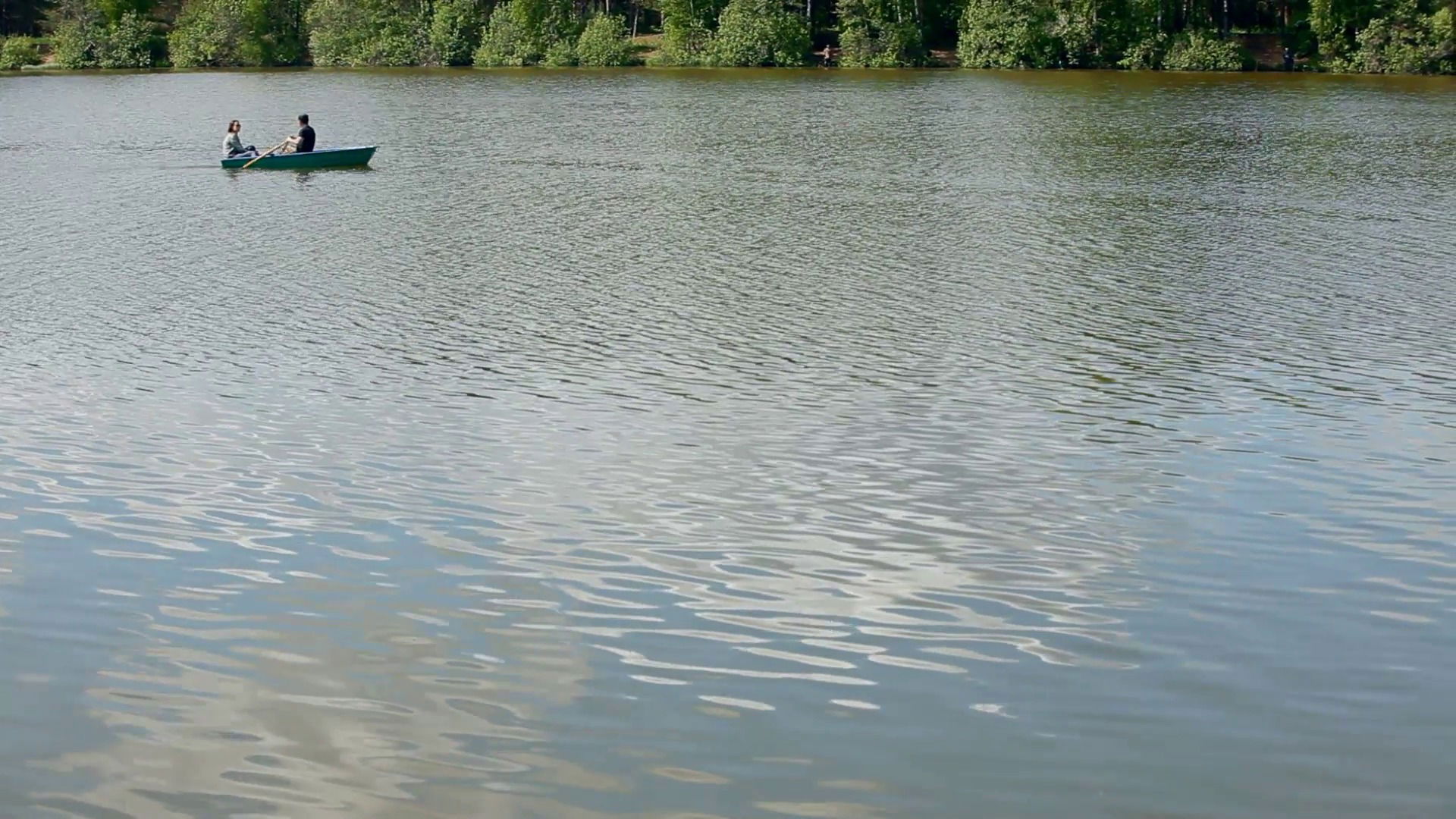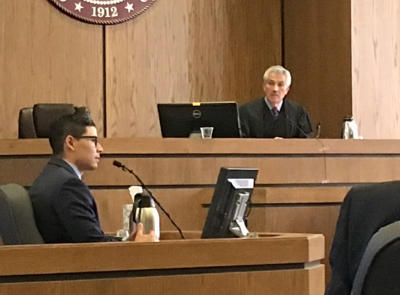Angie's blog
A little introduction
About me



Hello! my name is Angie Stephanny Cruz Amortegui, I was born in Bogotá, on september 21 of 1999, I am a student of modern languages in the university ECCI in Bogotá.
I like to listen to music, to read,to travel, to go out with my friends and to spend time with my family, I love eating pizza and lassagnia, learning new things every day, and speaking with my friends about differents topics; and also I love to dance and meet new people.
The things that I dislike are eating vegetables, runing, the liar people and the inequality.
I'm a shy and generous person, in many ocassions I could be a temperamental girl, when I Can help the people I do it and make the possible for that my friends are good.
In this moment I'm living alone in Bogotá for the University, but, when I was in the school I was living in La Mesa, with my parents and my brother, I usually go to visit them. The change was difficult, I miss the food of my mom and the jokes of my father.
I every day walk until the university, and have class 4 hours; I often at home in the afternoons, more o less at 2:10pm have my lunch and sometimes do the homework, I usually read a book or visit a friend, and in the night I frequently see a movie.
I would like speak better english and live abroad, and I think going to search work in a international factory and study other career like management or economy, for have a good job, and improve in different cultures.
I love to study modern lenguages it´s a beautiful career and amazing experience, I know that in a future I could be a good professional.
Link video conditionals
US President Donald Trump has become the first foreign leader to meet Japan's Emperor Naruhito.
Mr Trump, who is currently on a four-day state visit to Japan, was greeted by the emperor and Empress Masako at the Imperial Palace in Tokyo.
The US leader said ahead of the meeting that it was a "great honour".
Emperor Naruhito ascended the throne earlier in May after his father Akihito stepped down - the first abdication by a Japanese emperor in centuries.
"It's over 200 years since something like this has happened," Mr Trump said of the abdication on Sunday. "So it's a great honour to be representing the United States."
Mr Trump and First Lady Melania Trump were greeted by a Japanese honour guard and crowds waving US and Japanese flags as part of a formal welcoming ceremony on Monday.
The US president is said to have given a slight bow to the emperor and empress before entering the palace, according to news wire Reuters.
Mr Trump and Mrs Trump will return to the Imperial Palace later in the evening for a dinner banquet.
Reading plan
The Boy Who Painted Christ Black
The story is about a boy Aaron that studies in the Muskogee County School-for colored children, that boy was appreciated for his teachers and partners because he was brilliant and was considered as a ideal student.
He had a lot of talent and always help with the events in the school drew pumpkins, flags and did other type of handworks, specially painting.
A day, he made something more sepciall, that day was the birthday of his teacher, he painted Christ black with the argument that he have listened the cualities of Christ and he thought that Christ was should be black.
People who were sit kept the silence for a moment, but after found the picture so interesting was a piece of art, but the idea of Crhist Black was strange and uncomfortable for someones.
The painting was put in the place of the handworks that the students made during the year, the problem arrive when the supervisor of all the city school to saw the commencements, he recorred the school to saw the students and the metodology that used the teachers to teach, until he saw the picture, he said “Who painted this sacrilegious nonsense?” and Aaron spoke “I painted it, sir.”
The supervisor was angry and the principal of the school defended Aarons with the follow phrase "he paintin’ Jesus black as a white person have paintin’ him white, but this generated more disagree, supervisor was racist and thought that this picture attempt with good maners and ideologys about Jesus and religion.
After this discussion, the principal resigned the position that he had in the school but he conitnued teach to Aaron and help to explot his abilities.
We find this kind of behaviors a lot of time in the real life, despite we are in the XXI Century people are still racist and don´t accept that people are different in their appearance, the opportunities are more limited for these people, as if their color prevented them from being the same as us, in schools and in homes it is necessary to teach tolerance , respect for different cultures, make children understand that variety is not bad and that we are all different but we value the same and deserve the same amount of respect equally.
- What vill be your first impression to see a painting of Crhist Black?
- What do you think about the attitude of the supervisor?
-If you were the principal what would you do?
The person who has changed the world
LOUIS AND AUGUST LOUMIERE.
The brothers were studied at the technical school La Martinière, where developed their abilities and aquired a solid scientific learning. Louis discovered the instantant photograph in 188, in 1895 both borthers patterned the cinematograph, and in 1903 the utocrome in color. This research vocation continues during the first world war in August designed orthopedic devices for the burns of the soldiers.
The apparatus consisted of a wooden box with a lens and a perforated film of 35 millimeters. This was rolled by a crank to take the snapshots that made up the sequence (which did not last more than a minute) and then the project the footage on a screen.
They wanted to transmit the correct idea of the cinematograph and they decided did a poster to transmit three message, it was free, it was for all people and it was not an attempt against the good manners.
After the success of their first screening in Lyon, the Lumière brothers opened a theater to exhibit their films in Paris in 1897. From the film Exit from the Lumiere factory they made three versions before projecting it in the first public session, which was held on December 28, 1895 in the well-known Indian Salon of the Grand Café in Paris.
They changed the way that people saw the art, this invention allowed the creation of instrument that we use everyday, and that are fundamental in differents fields.
- What do you think about Cinematograph?
-Do you think that this invent really help the art industry, why?
- If you will have the opportunity to talk with they, what would you say?
Academic application letter
Modern languages student
ECCI University - Bogotá D.C
Have a warm greeting.
I´m writing this letter in order to apply for a scholarship in your modern languages program in which I will give my reasons and at the same time I will anounce my capacities and abilities to be acepted.
It will be a pleasure belong to Harvard University for me, taking into account that your program is one of the best in the country and one of the most important and prestigious universities at the world.
This will be the opportunity of my life and also the opportunity to improve my semantic skills and in my knowledge about this major and to be a integral person and professional, I want to be a competent person and I think that I can achieve that in your university.
I´m a responsible and respect person, I am a person who wants to improve every day, who strives to achieve what I want and seeks the means to achieve this; I know that these kinds of opportunities are limited and I would like to take advantage of it
It is in your consideration.
Waiting answer.
Sincerely, Angie Cruz
My learning process
I feel that in this semester I developed and improve more in my "listening" that is so important, I feel better with my pronunciation and with my speak, I know that I have to improve in more aspects that writting and sometimes with the use of the grammar structure.
The activities that we did in class helped me with pronunciation and fluency, and also with my reading.
My commitment to the major is the same, but I felt that I was not very attentive to classes this semester because of external factors but I am willing to continue improving in my learning process.
anecdote
For three months, I was sad and angry about this situation, all of my friends were studying at the university and lived in Bogotá while I was in La Mesa, in home.
A day my parents talked with me about this and we made an agreement, I had to started working and they would help me to study at the university.
I found a job in a big new supermarket, I didn´t like this idea but I had to do.
People were kind with me and also I made some friends; I was the youngest person in this place but the most responsible with my job, this place changed the way that I saw things, I learned to be more independent and apreciate the effort that my parents do every day.
For a year I worked hard and I saved the money that I could, and in february of 2018 I paid my semester, because if you want something you have to do everything for make this real.
This experience have been one of the greatest and significant in my life.
The poberty in the world



By poberty we understand the condition or situation of a part of the population that can´t acces to the basic minimun resources to cover their mental and physical needs which makes them have an unadequate standard of living.
According to the United Nations the meaning of poberty is: poberty goes beyond the lack of income or resources to garantee a sustainable livelihoods, it´s manifestations including: malnutrition, hunger, discrimination, limited acces to education and other basic services, social exclusion and lack of participation and decision-making.
Percentage of poberty in the world
*In the world is 96% this mean that this people survive with less of € 1.6
* In Sub-Saharan Africa the rate continue to reach with 35.2% where the large number of poor children is concentrated.
*The most unequal countries in Latin America are: Chile, Brazil, Honduras, Guatemala and Colombia.
*The countries with the lowest index of poberty are: Chile and Uruguay.
The NGO "manos unidas" lists various causes that have led to current poberty including colonialism, warm and slavery.
Altough other continue to take place in the 21st century, other important factors are:
- Indifference of the developed countries towards the problems of the poorest countries.
- Use cheap labor in the most disadvantaged countries by large multinationals.
- Unequal exchange between countries.
Reading plan
The call of the wild
The story is about Bucks, a dog that lives comfortably in California, but this change completely when an employee sells it to traffiquers that take advantage of the gold rush, because te big dogs are needed to pull the sleds in Canada.
It is sold to two men, there Bucks learns to survive in the extreme cold and fights with other dogs, after confronts with the leader of the pack and killed him, Bucks feels something new and strange it´s her wild spirit.
The dogs are then sold to a man who works for the mail, the dogs must carry a very large load to the mining regions and the journey was far and difficult.
Again the dogs change of owner and in this ocasion were a miners that didn´t have experience in the wild north.
They tried to control the sled, but they didn´t notice the danger sings. Jhon Thorton and experienced miner crosses them and realizes the situation.
He warms them against crossing a river but the miners decide not to heeded warnings, they die in the attempt, less Buck because he refused to pass.
Jhon Thorton became his new owner and friend, while he was discovering his wild side more in the company of a wolf he had befriended, one day when Bucks returned from roaming the forest he found Thorton dead, he had been killed by Yehats , Indians from that part of the mountain.
Bucks in revenge for the death of his friend decides to kill them, and in turn, decides to live with the pack of his wolf friend, finally letting out his wild spirit.
Bucks became a legend, and it is said that every year he returns to the place where Thorton died to mourn his death.
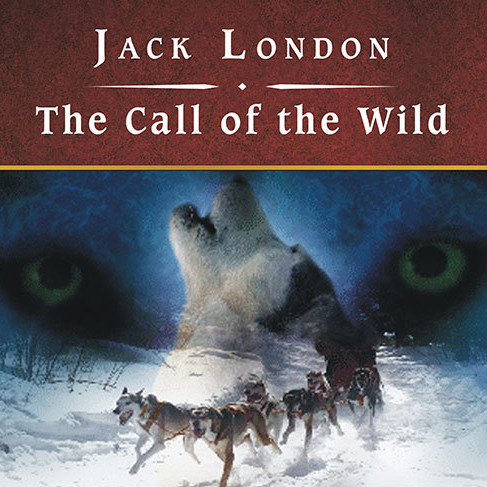
*For you, what do you think is the moral of the book?
*What do you think would have happened if Buck had discovered his wild spirit from before?
*Do you think that in the real life this can be possible?
Correction of videos
3 questions to ask yourself about everything you do - Stacey Abrams.
The idea of this conference is to determine where we are going and what we want to achieve, but first we must make sure we know how to get there, based on three important questions: What do I want? Because I want it? How do I get it?
This will allow us to understand the way in which we must act to achieve what we want, it is a task of dedication and effort and where each day we are one step below that goal.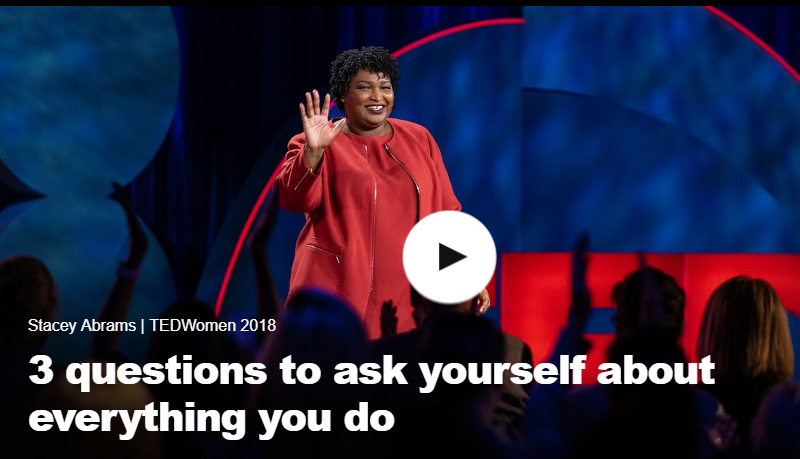
The danger of silence.
Silence can often be the cause of great problems that are around us.
We keep silent about injustices, allowing them to happen again and again, we are participants in promoting violence, pain and abuse, since selfishness and fear do not allow us to speak when we should.
For this reason, we must understand that silence will never be a good answer and it is something that we should withdraw from our thoughts to apply new habits and ways of acting in face of the different situations that life presents to us.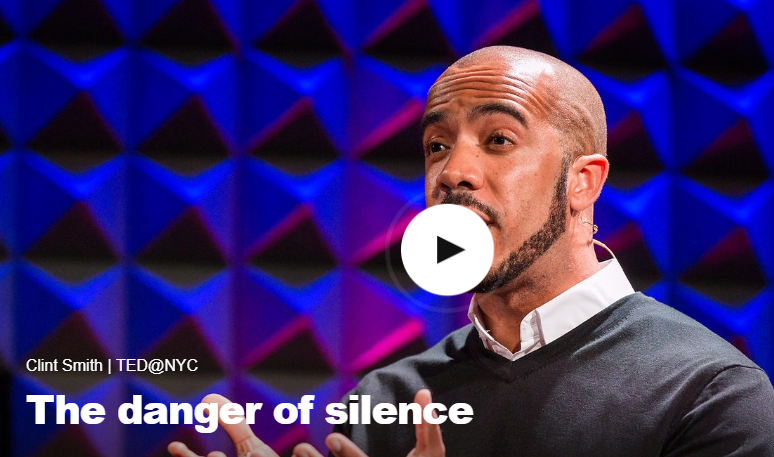
My personal dictionary
| Maid | Noun | /meɪd/ | A woman who works as a servant in a hotel or in someone's home | The maid of the hotel was being friendly |  |
| Guilty | Adjective | /ˈɡɪlti/ | *Ashamed because you have done something wrong *having broken a law | *She look guilty for lost the car *He is guilty for shoot the gun |   |
| Wipe | Verb | /waɪp/ | *to clean or dry something by moving a cloth across it | He wiping his face and glasses |  |
| Tight | Adjective | /taɪt/ | *firm and difficult to move *controlled and obeying all rules completely *If money, time, or space is tight, there is only just enough of it | *His lips are tight and close *They kept tight control of the school budget. *We should get six people into the car but it will be tight. |   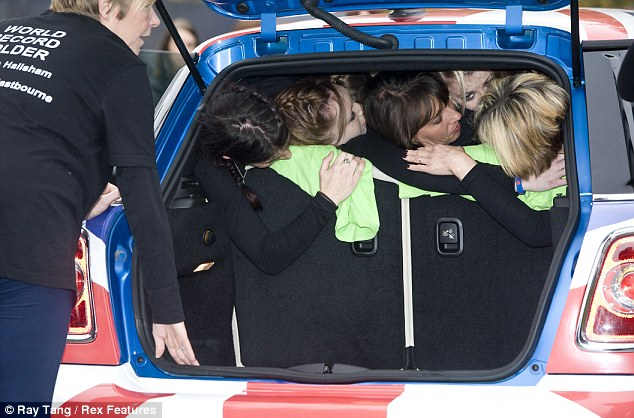 |
| Handle | Verb | /ˈhændl/ | *to deal with something *to touch, hold, or pick up something *to buy and sell goods: | *they handled the situation very well. *You must wash your hands before handling food. *He's been charged with handling stolen goods. |   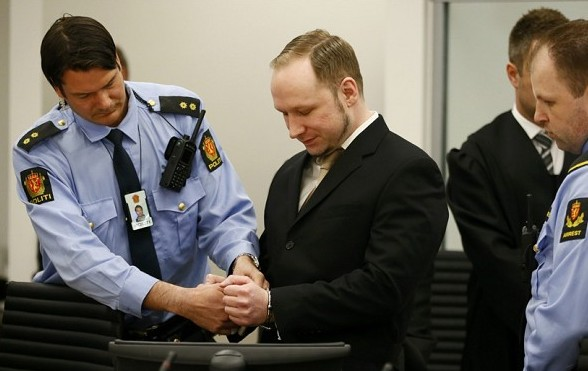 |
| Thief | Noun | /θiːf/ | someone who steals things | *I find her thief my jewel box |  |
My personal dictionary
| Groaned | verb | /ɡrəʊn/ | to make a long, low sound such as when expressing pain, unhappiness, etc | She collapsed, groaning with pain. |  |
| Buried | verb | /ˈberi/ | *to put a dead body into the ground *to hide something in the ground or under something | *He was buried in the village where he grew up. *She watched the dog burying its bone |   |
| Graves | noun | /ɡreɪv/ | A place in the ground where a dead body is buried | An unmarked grave |  |
| Gravestone | Noun | /ˈɡreɪvstəʊn/ | A stone that shows the name of a dead person who is buried under it | It´s a nice design for a gravestone | 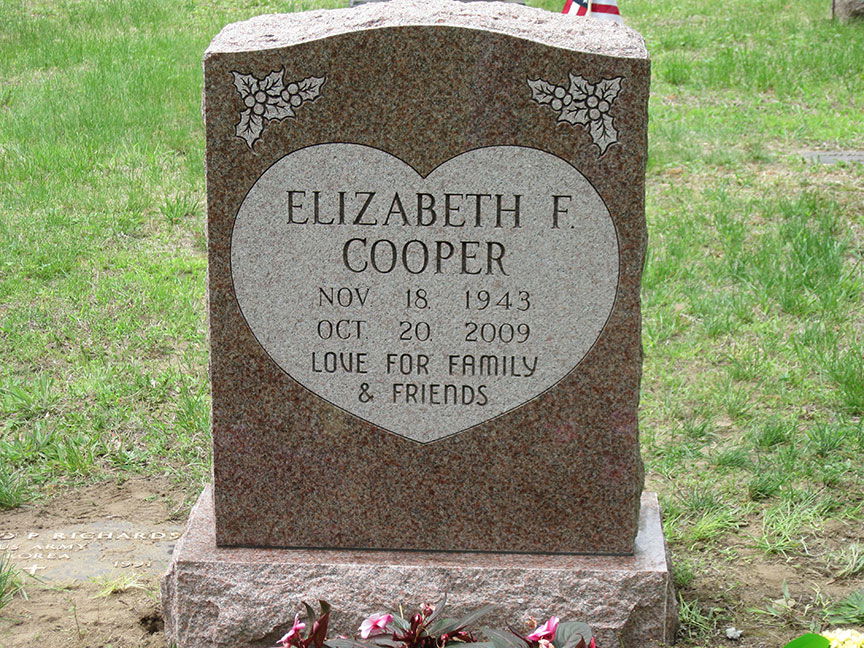 |
| Path | Noun | /pɑːθ/ | *A long, narrow area of ground for people to walk along *the direction that a person or vehicle moves in *a particular way of doing something over a period of time | *There's a path through the forest *A flight path *Whichever path we choose, we'll have difficulties. |    |
| Loudly | Adjective | /laʊd/ | *Making a lot of noise *Loud clothes are too bright or have too many colours | *The music was so loud that the floor was vibrating. *You shouldn't wear anything too loud to a job interview. | 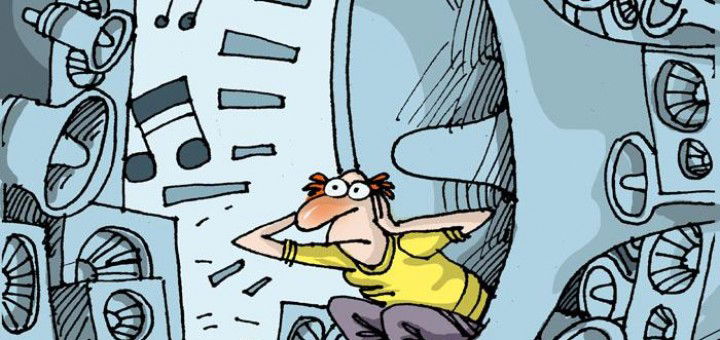  |
| Grass | noun | /ɡrɑːs/ | A low, green plant that grows naturally over a lot of the earth's surface, having groups of very thin leaves that grow close together in large numbers | *Are you going to cut the grass? |  |
| Glad | Adecjtive | /ɡlæd/ | Pleased and happy | *I'm glad of the opportunity to work in this factory |  |
| Bring | Verb | /brɪŋ/ | *to take or carry someone or something to a place or a person, or in the direction of the person speaking. *to cause, result in, or produce a state or condition. *to make or begin as part of an official legal process | *Can you help me bring in the shopping? *Bring the water to the boil *He was arrested for fighting, but the police have decided not to bring charges. |    |
| Shelf | Noun | /ʃelf/ | *A long, flat board fixed horizontally, usually against a wall or inside a cupboard so that objects can be stored on it | Her shelves are filled with books and photographs. |  |
| supplier | noun | /səˈplaɪ.ər/ | A company, person, etc. that provides things that people want or need, especially over a long period of time | He said that he had got the drugs from his usual supplier. | 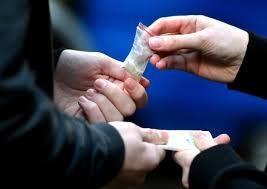 |
| grocery | noun | /ˈɡrəʊsəri/ | a store that sells food and small things for the home | What will the weekly grocery bill be then? | 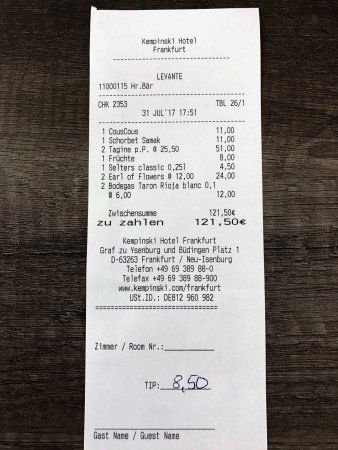 |
| appliances | noun | /əˈplaɪ.əns/ | a device, machine, or piece of equipment, especially an electrical one that is used in the house, such as a cooker or washing machine | Are all of the kitchen appliances included in the price of the house? |  |
| packages | noun | /ˈpæk.ɪdʒ/ | object or set of objects wrapped in paper, usually in order to be sent by post | Please handle this package with care. |  |
| log | noun | /lɒɡ/ | *a thick piece of tree trunk or branch, especially one cut for burning on a fire *a full written record of a journey, a period of time, or an event | *We found a huge pile of logs. *the ship's log |  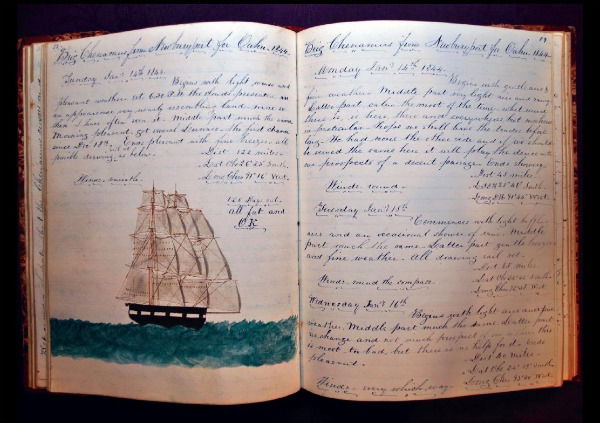 |
| equable | Adjective | /ˈek.wə.bəl/ | *always being pleasant *not changing suddenly | *Luisa has a fairly equable temperament *The south of the country enjoys an equable climate |   |
| attach | verb | /əˈtætʃ/ | *to fasten, join, or connect something *to join a file such as a document, picture, or computer program, to an email | *Use this cable to attach the printer to the computer. *There may be a virus in the file that is attached, so don't open it. |   |
| enquiry | noun | /ɪnˈkwaɪəri/ | a place where you can get information | Ask at enquiries for directions to the conference room. |  |
| delay | *Verb *Noun | /dɪˈleɪ/ | *(verb) to make something happen at a later time than originally planned or expected. (noun)the situation in which you have to wait longer than expected for something to happen, or the time that you have to wait | *My plane was delayed by an hour. *There has been a delay in the book's publication. |   |
| regards | noun | /rɪˈɡɑrdz/ | *greetings and expressions of affection | Please give my regards to your sister. |  |
| cobbler | noun | /ˈkɒb.lər/ | *a person who repairs shoes. *a dish that consists of cooked food, usually fruit, with a thick bread-like mixture on on top | *The cobbler that work in the sown town left my shoes in perfect condition. *For dessert there was peach cobbler. | 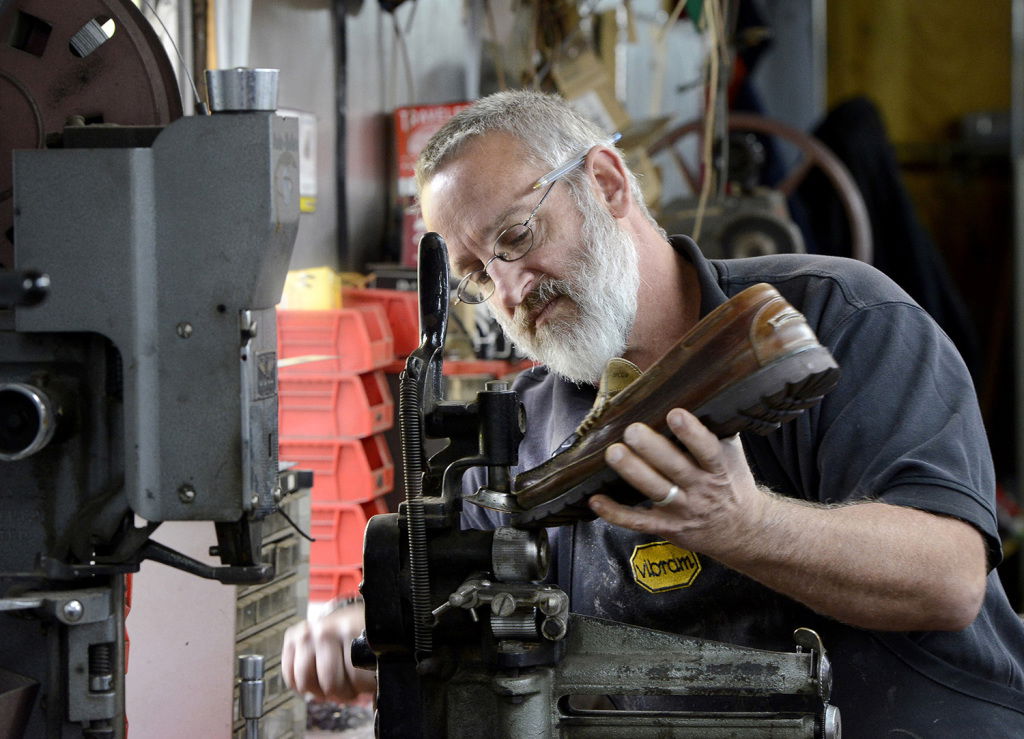  |
| reliable | Adjective | /rɪˈlaɪ.ə.bəl/ | *Someone or something that is reliable can be trusted or believed because he, she, or it works or behaves well in the way you expect | *Is your watch reliable? | 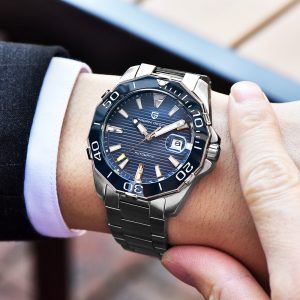 |
Presentation
My presentation was about Panda
I believe that is a interesting topic, and I like learn more about differents topics, this animal is one of the most known around the world, and the lats years it´s has been identified as a endangered animal, I wanted to know the reason for this, and teach a little of their lives and the conditions of their natural habitat; All talked about his favorite band, movies, but nothing spoke about one animal, I want to be original and it´s my favorite animal; this excerise was so good for learn new vocabulary and to correct the mistakes in the pronunciation.


phrasal verbs
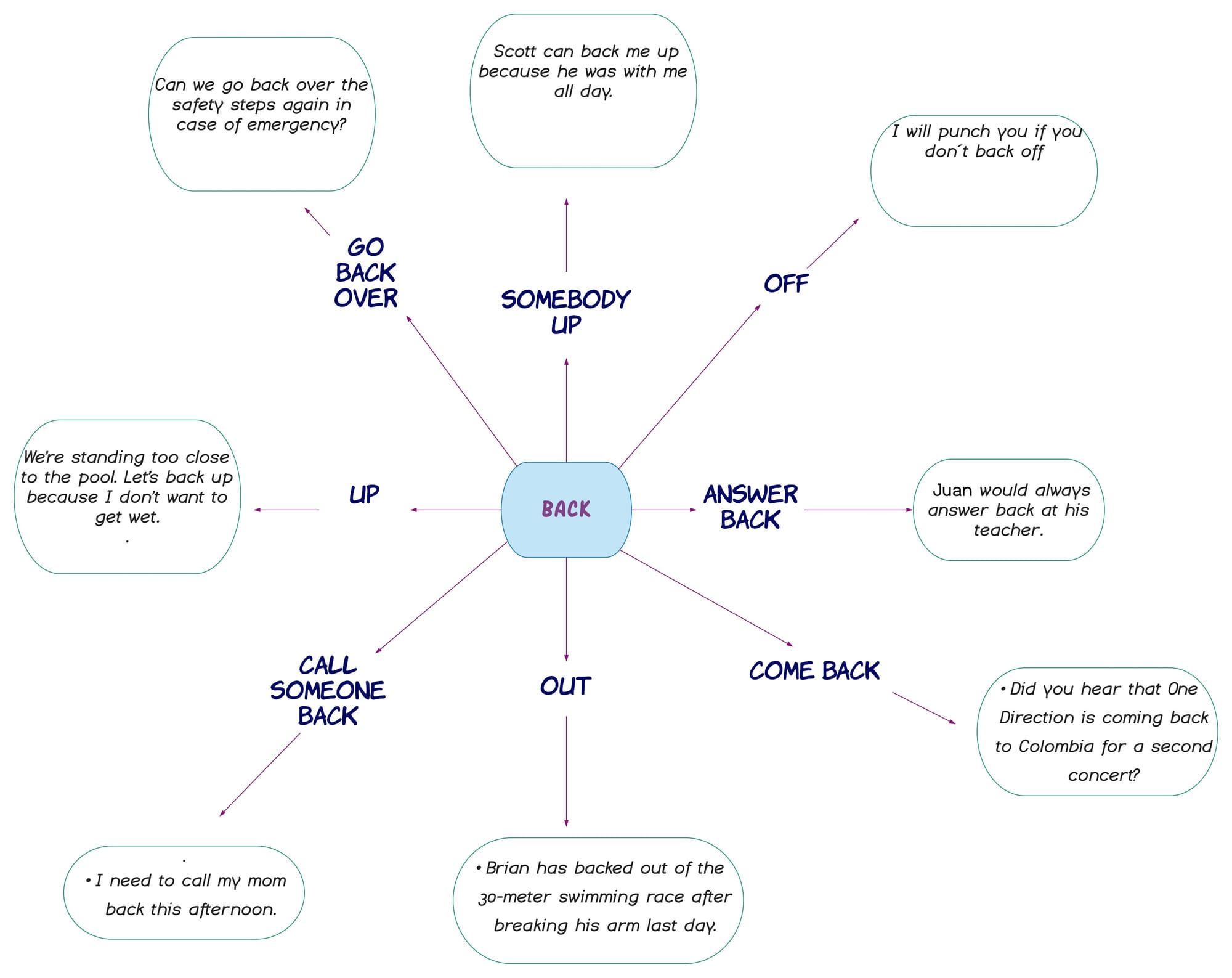
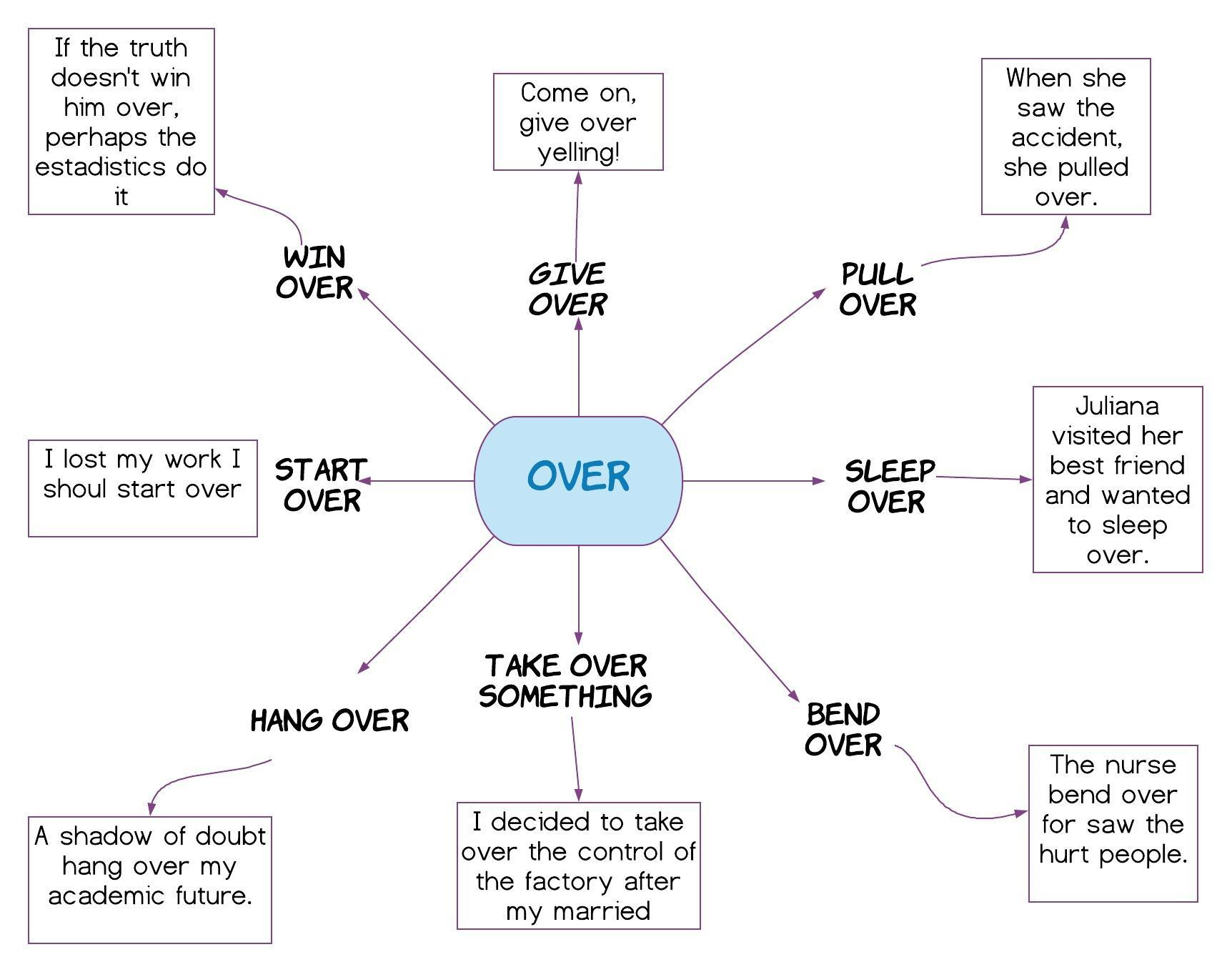
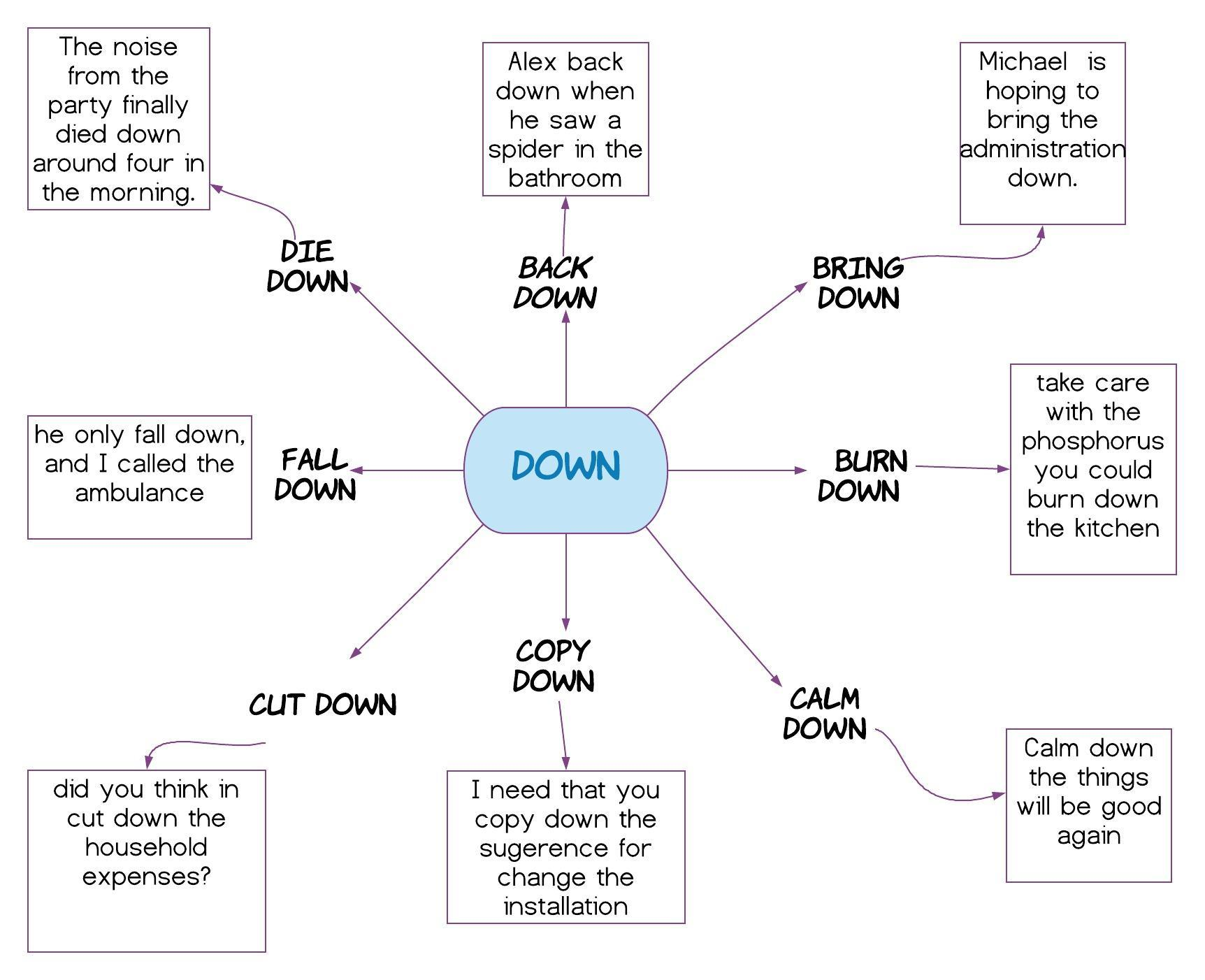
Business person
Fred Smith-FedEx
Frederick Wallace Smith (August 11, 1944 MISSISSIPPI)
American Business executive who founded in 1971 Federal Express one of the largest express-delivery company in the world.
When he was a child Smith suffered from Legg-Calvé-Perthes syndrome, a potentially crippling disease; he recovered and he learned to pilot airplanes.
Later he studied economics at Yale university where he wrote a paper about overnight delivery services. After graduating in 1966, Smith served two tours with the U.S. marines during the Vietnam War.
A charismatical and patriarcal leader that is Frederick Wallace "Fred" Smith, founder of FedEX corp one of the largest American freight and delivery logistics companies of the 20th century founded with inspiration, confidence and decision of a leader that is recognize and admire for today world.
On june 18, 1971 Smith founded Federal Express with his inheritance of $4.000.000 dollars and raised $91.000.000 in venture capital. Is an airline and logistics company of American origin, wich has international coverage.
It was founded under the name Federal Express in Little Rock (Arkansas). FedEx is an abrevation of the original name of the company.
FedEX was the first cargo airline to use only jet planes for it's services.
The company was moved to Memphis (Tennesee) in 1973 for some problems with airport authorities that didn´t allow the activity of the aerial company. At the same year the company began offering service to 25 cities and started with small packages and documents and a fleet of 14 falcon jets 20 (DA-20)
His focus was developing an integrated air - to ground system, wich had never been done.
10 RULES TO BE SUCCESSFUL
1. Believe : when he was a child he had a terrible bone disease, but he managed to recover at 10 years old
2. Be modest and work : he had a great interest in flying and became an amateur pilot when he was a teenager
3. Have a vision: While at Yale, he wrote an essay on the economic classes in which he predicted overnight deliveries and the era of technological information.
4.Dare to take risk : He received his degree in Economics in 1966.
5. Work as a team
After graduating he joined the U.S. Marine Corps where he served for three years.
6. Innova
He served for two years in Vietnam where he flew in 200 combat missions.
7. Think global
He founded Federal Express with a US $ 4 million inheritance and then raised US $ 91 million with private equity funds.
8. Be prepared
In his early days with FedEx he had to make great sacrifices to keep the company afloat.
9. Dominate your sector
When he was CEO of FedEx in 2008 he reached compensations for US $ 10,434,589.
10. It always improves
He entered the United States Hall of Fame for Business in 1998.

Exposition
CAUSES OF SECOND WORLD WAR
World War II, also called Second World War, conflict that involved virtually every part of the world during the years 1939–45. The principal belligerents were the Axis powers—Germany, Italy, and Japan—and the Allies—France, Great Britain, the United States, the Soviet Union, and, to a lesser extent, China. The war was in many respects a continuation, after an uneasy 20-year hiatus, of the disputes left unsettled by World War I. The 40,000,000–50,000,000 deaths incurred in World War II make it the bloodiest conflict, as well as the largest war, in history.
It´s causes were: Teatry of versailles
The main terms of the Treaty of Versailles were:
*War Guilt Clause – Germany should accept the blame for starting World War One
*Reparations – Germany had to pay 6,600 million pounds for the damage caused by the war
*Disarmament – Germany was only allowed to have a small army and six naval ships. No tanks, no airforce and no submarines were allowed. The Rhineland area was to be de-militarised.
*Territorial Clauses – Land was taken away from Germany and given to other countries. Anschluss (union with Austria) was forbidden.
The German people were very unhappy about the treaty and thought that it was too harsh. Germany could not afford to pay the money and during the 1920s the people in Germany were very poor. There were not many jobs and the price of food and basic goods was high. People were dissatisfied with the government and voted to power a man who promised to rip up the Treaty of Versailles. His name was Adolf Hitler.
*Adolf Hitler became Chancellor of Germany in January 1933. Almost immediately he began secretly building up Germany’s army and weapons. In 1934 he increased the size of the army, began building warships and created a German airforce. Compulsory military service was also introduced.
Although Britain and France were aware of Hitler’s actions, they were also concerned about the rise of Communism and believed that a stronger Germany might help to prevent the spread of Communism to the West.
In 1936 Hitler ordered German troops to enter the Rhineland. At this point the German army was not very strong and could have been easily defeated. Yet neither France nor Britain was prepared to start another war.
Hitler also made two important alliances during 1936. The first was called the Rome-Berlin Axis Pact and allied Hitler’s Germany with Mussolini’s Italy. The second was called the Anti-Comitern Pact and allied Germany with Japan.
*In 1931, Japan was hit badly by the depression. People lost faith in the government and turned to the army to find a solution. The army invaded Manchuria in China, an area rich in minerals and resources. China appealed to the League for help. The Japanese government were told to order the army to leave Manchuria immediately. However, the army took no notice of the government and continued its conquest of Manchuria.
The League then called for countries to stop trading with Japan but because of the depression many countries did not want to risk losing trade and did not agree to the request. The League then made a further call for Japan to withdraw from Manchuria but Japan’s response was to leave the League of Nations.
Personal opinion about exposition
Was a big conflict for the power and for the land expansión, the ideologys was the end of a lot of people who were inocents and that only wanted a good place for lived with their families, the war brought pain and suffering, for the selfishness and the wish of power.
But for other hand also generated development of different technologies, tools, and to grow in the scientist field; It was not necessary, and I hope that this episode doesn't repeat.
It´s so important that we meet diferents aspects for this conflict, the history of the today world.
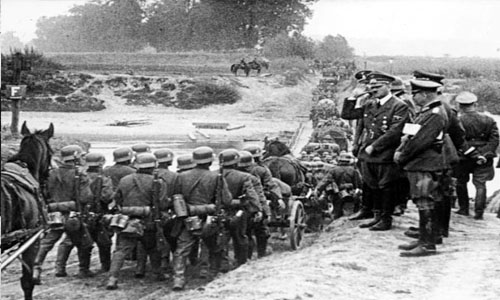
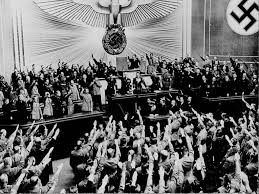
Canadian memory project
TOP 10
THINGS THAT YOU HAVE TO DO IN COLOMBIA
1. Walk to Monserrate.
Is cheaper than travel to another city of Colombia and is good for your health
2.Swim in the beach of San Andres
Is the best plan for the family, and you can have a relaxing day
3. Visit Laguna de Guatape
The laguna de Guatapé is more beautiful than the Bogota river or anyone river
4. Drive in the metrocable of Medellín
This plan is funnier than drive transmilenio or bus
5. Saw the animals of Zoo of Cali
It´s a bigger zoo than others of the country and also you can see a variety of animals in a good conditions.
6.Go to the major theatre Julio Mario Santodomingo
For enjoy one of the most magical places in the town
7. Read a book in the Virgilio library
Search a good book in a excellent ambient, inside of one of the biggest libraries in the town
8. Go to a feria de las flores
On august the worst thing that you can to do is stay at home and lost the Feria de las flores in Medellín.
9. Climb Nevado del Ruiz
This place is one of the coldest places of Colombia, you can find snow and have a nice time
10. Drink coffe of Coffe National park
It´s the most delicious coffe in the world and you have to prove it if you are in Colombia
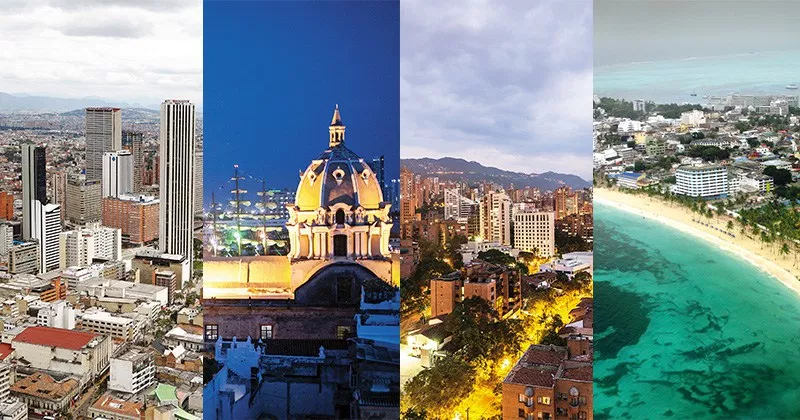


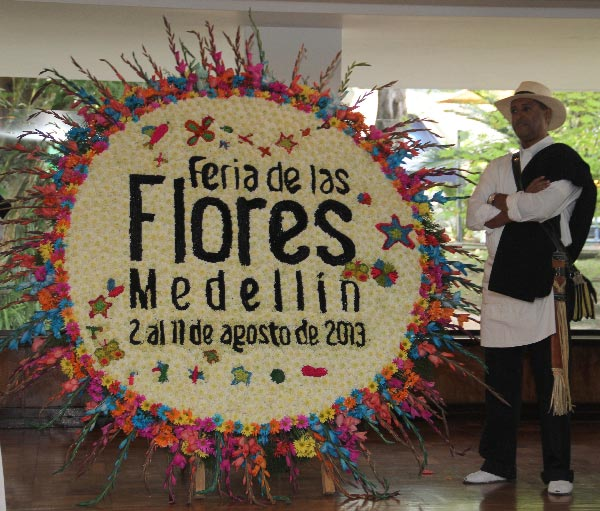

poem intermediate oral


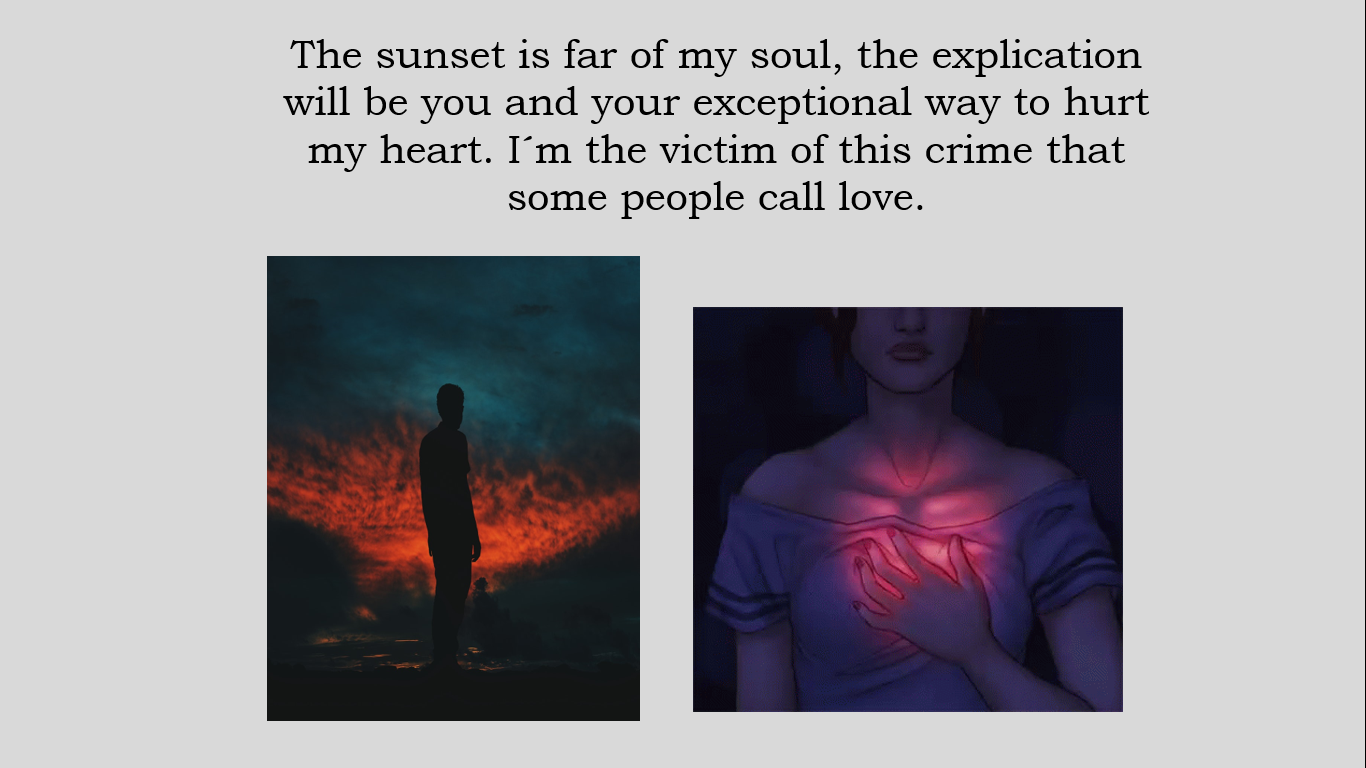



SPEECH
EDUCATION, RIGHT OR PRIVILEGE?
Before addressing this question and it’s possible answer, we must first understand a little about the relevance of education and it’s role, a brief introduction of what everyone may think as I do, or at least share some ideas.
One of the fundamental pillars in the growth and development of children and adolescents is education, for a long time the idea of learning, teaching, acquiring knowledge, values, developing skills and beliefs are indispensable and are issues that are not only seen in the school, our learning process begins at the moment that we are born, a constant acquisition of knowledge, not systematic knowledge precisely like mathematics, Spanish, social, sciences, are things like learning to walk, to talk among other aspects, to depend on ourselves.
Life sometimes brings many things that don’t teach us anywhere, sometimes we must discover it on our own, learn from our mistakes in an empirical way, but that doesn’t mean that the teachings that educational institutions give us are unimportant; In addition, education in individuals generates social growth, development for the community in general.
Parents start sending children to a kindergarden from the ages of 2 to 5 years old, who initially find it difficult to adjust to their new rhythm and start interacting with people and children who aren’t members of their household.
And so they begin their great passage in the education world, some stumble upon many others, this process is facilitated. But, not all of them manage to reach a bachelor ship, children with limited resources must resort to ways to help their parents for obtain money to cover their basic needs and expenses in their homes, their knowledge is half-baked and they make them grow bad, in spite of the existence of public schools, parents can’t afford to spend money on uniforms, books or materials and prefer to invest money in things that are "more important" to them.Every day we meet children in traffic lights, in Transmilenio, selling sweets, working out any way to generate some kind of income; lucky are those who shouldn´t worry about getting money to pay for services or at least to eat, everything gets more complicated as it grows, as we accumulate years.
There are very few aid offered by the state to these families, especially children who will soon be responsible for generating development in most of the environments that surround us.
On average, there are more than 10 million children who don’t receive any type of school education with ages between 5 and 16 years; and according to the Ministry of Education, the reasons for this number of children who aren’t studying or who leave school in some degree of their education have to do, mainly, with factors such as child labor, violence or lack of financial resources to access the school.
The city with the largest out-of-school population is Bogotá, with a total of 106,367 boys and 85,612 girls who don’t attend school. In addition, we must not forget the fact that many times the investment made by the state in education is very low and public schools often do not reach the level of private institutions, generating that children do not possess the same amounts of knowledge and at an unfavorable price for people who do not have large sums of money.
Many teenagers who are in the schools or who study in the universities are there thanks to a scholarship system that allows them to continue with their studies, the existence of scholarships motivates students to strive in notorious ways to excel in their studies and can collaborate with their parents with the cost of tuition and pensions, but for this they must follow certain parameters therefore if they do not meet these conditions they can not be aspiring to these privileges.
Ratifying the fact that education is more a privilege than a right, the majority of universities are private and for public universities an examination must be carried out to allow them to enter, not all of them approve, what is the use of having the goals and clear objectives if the opportunities are scarce in the country or in the world: people who do not have enough to pay for their semesters in universities must work by day and study at night,for generate a large amount of money and exhaustion, many times they can’t respond with jobs, they assume a really great responsibility both in their jobs, their future and their career; Compared with the people who receive money by their parents, which are responsible for the payment of the career and the other expenses that study brings.
Recently it was announced the end of one of the most important programs that allowed the education of students who met a certain score in the state test ICFES, Ser pilo paga who achieved this score could enter any type of university, private or public, regardless of the cost of the race, its end was due to a deficit in the program of 2 billion pesos. With this we can notice that the management by the state to offer a good education is not really the best, its concern is very little regarding the income destined to this field, if it was a right this type of programs would have the importance they deserve and they would look for alternatives to cover the deficit, this decision affects considerably the students who only had this tool to study in institutions that offer higher education, it’s very uncertain the future that holds for public institutions because they don’t have the income enough to support the expenses demanded by the universities and to pay teachers' salaries.
Problems that are not found in private universities, limited are the options that have those who wish to pursue their university studies; On the other hand those who manage to get ahead by their own means or public universities and want to get work to achieve stability and put into practice what they learned when being next to people who aspire to the same position but with their studies at recognized universities, which implied a greater investment in the career are left aside and the attention turns around those who had the possibility of carrying out their studies in expensive universities.
SENA offers a variety of technologists and technicians, it offers them the opportunity to get a job in the same way; but who is going to compare a person graduated from Sena to a graduate of the University of the Andes for example; everyone can generate the answer to this question, but the doors are closed more and more for people with limited resources who want to study but can’t, we are in a world where money facilitates the achievement of many important things such as acquisition of knowledge and the development of people, adolescents, adults, children.
I have heard many people say that it isn’t in the government's interest that people have a knowledge development because it does not suit them, the new generations would know what things would be good and what would not be for them, therefore, their regime of corruption and bad Handlings would not continue, they want to return to the ignorant people so that they can do their own.
In short, we aim that every child attends a school worthy and well endowed; that all culminate the last year of the school year; that public schools are at the level of private schools, we demand that the State prioritize education. And, above all, we do not allow education to be a privilege of those who can afford it.



